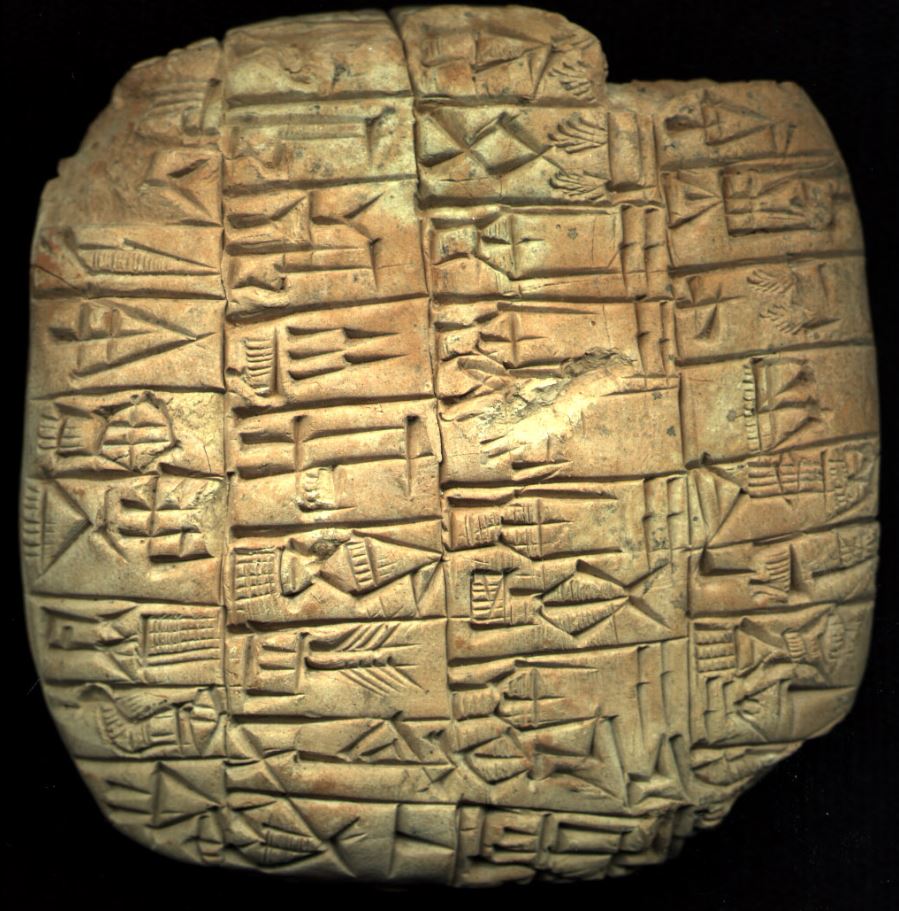Today’s tablet is a reminder not to believe everything you read. Not to take everything at face value. Prescription ingredients may not always be what they seem.
While researching today’s tablet, I was introduced to the German word “dreckapotheke” (literally “dirt pharmacy”), the use of disgusting things in medicine. Think “Eye of newt, and toe of frog, Wool of bat, and tongue of dog” from the witches in Macbeth. Think excrement of cow, goat, wolf, rat, all attested to in Hippocratic recipes. Think human bone, used in Mesopotamian prescriptions.
Human bone is listed in a prescription of “fumigation from below” in the tablet we’re looking at today. Fumigation as a treatment in general involved placing the patient over hot coals, with the ingredients of the prescription cast into the fire to produce smoke. Fumigation from below was used as a treatment for various gynaecological disorders, to either encourage the expulsion of fluids, or to stop bleeding. Human bone was thought to be a drying ingredient, so was used for the latter.
While “fumigation from below” is known from the Mesopotamians, the Greeks used it a lot more. The primary reason was to cure illnesses that they hypothesised were caused by “wandering womb” (the Greeks loved a hypothesis). They would attempt to lure the womb back home from its peregrination with sweet-smelling smoke, and simultaneously drive it away from the head by inhaling foul-smelling smoke from burning hair or animal dung.
Like a wandering womb, we return to that human bone, or should I say “human bone”. In fact, this is the name of a plant, otherwise known to the Mesopotamians as shepherd’s staff, though we don’t know what that plant is called today. There are other examples. “Dog turds” and “wolf fat” are also known to be secret names for plants, which served to keep the arcane arts of the physician from the general populace. It is of course possible that the Greeks made a similar use of codewords, given the variety of animal turds mentioned in those Hippocratic recipes. It’s also possible (in all fairness, quite likely) that the Mesopotamians used various disgusting things in their recipes. But wouldn’t it be lovely if those sniffy ancient Greeks had taken the Mesopotamians’ codewords at face value and set themselves to smoking shit, not smoking “shit”?

